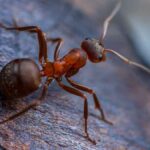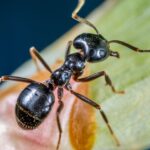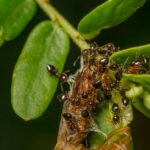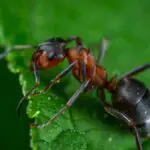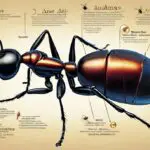No one wants even the smallest ant invasion around them – especially not in their RVs. An ant infestation can ruin a camping experience completely.
RVers detest ants for several reasons. One, ants’ small size makes them difficult pests to control. Two, they tend to occupy everywhere, even tight corners and places out of reach like RV walls.
Moreover, they are major pathogen vectors. Ants are carriers of several disease-causing organisms that can contaminate your food items.
So, continue reading if you want to know how to win the fight against the ants in your RV walls and get them out.
In this article, you will find out why ants infest your RV walls, effective methods to get them out, and tips on preventing ant infestations in your RV.
Great, right? Let’s get to it, then.
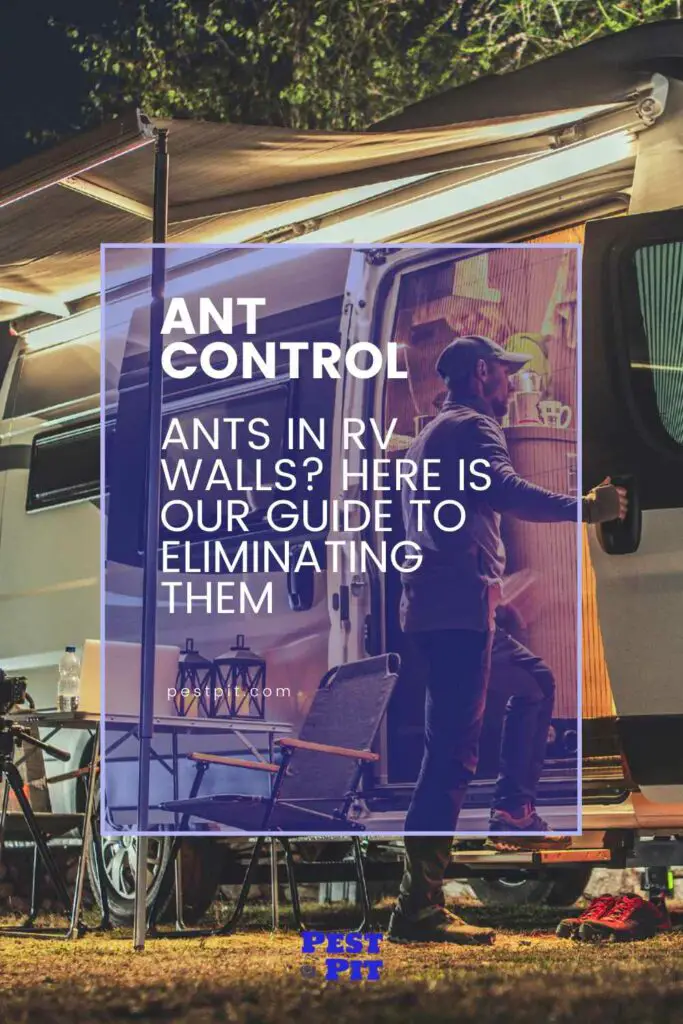
Why do you have ants in your RV walls?
Several ant species (sugar ants, carpenter ants, etc.) infest your RV walls. However, the species you’re more likely to find is the carpenter ant.
So, why do carpenter ants take up abode in your RV walls? Leaks.
Yes, you read that right. Carpenter ants are known to thrive in damp wood, and the water leakages in your RVs make the RV walls a perfect habitat for a carpenter ant colony.
Another reason ants may enter your RV, and, consequently, the wall, is food. If your RV is parked near a food source or there are food sources for ants in your RV, then you can only expect them to visit you.
How to handle ant infestation in RVs
Some ant species, especially carpenter ants and sugar ants, are nocturnal; they are more active at night. Hence, it is likelier that you’ll find them foraging in your RVs after sundown.
Also, ants typically send 10% of their workers out to forage. So, if you find many ants in your RV, you may have an ant nest. The RV walls, perhaps?
Regardless of where the ants may be lurking in your RV, you can use any of the methods highlighted below to get rid of them.
Diatomaceous earth

Using diatomaceous earth is one of the best ways to control ant infestation.
It is affordable and efficient. Moreover, diatomaceous earth (DE) is non-toxic to children, pets, and birds. However, it does not kill ants alone; it also eliminates bed bugs, cockroaches, ticks, fleas, earwigs, slugs, beetles, ants, and earwigs.
Diatomaceous earth consists of fossilized, crushed diatom and algal skeletons. The powder adheres to these creatures’ feet and legs as they walk through it, only to penetrate their joints and exoskeleton.
Diatomaceous earth acts as tiny shards of shattered glass that damage the insects’ bodies before drying out their fluids. You have to sprinkle it in where you suspect the ants are coming from, and you’ll soon be rid of these tiny pests.
Baking Soda

You can also use baking soda and sugar to eliminate the ants in your RV.
Here’s how it works: mix equal parts of baking soda and sugar and place the mixture in a shallow container. Then, you set the container where you’ve seen ants often.
When ants consume baking soda, it reacts with their digestive enzymes to produce carbon dioxide. This process dries out the ants’ bodies, effectively killing them.
The advantage of this method is that you do not have to worry about locating the ant nests because the foraging worker ants carry the food (baking soda) back to feed the colony, which means a death sentence to as many members of the colonies that feed on the mixture.
And once the nest is wiped out, you’ll not see those tiny pests in your RV for a long while.
Borax
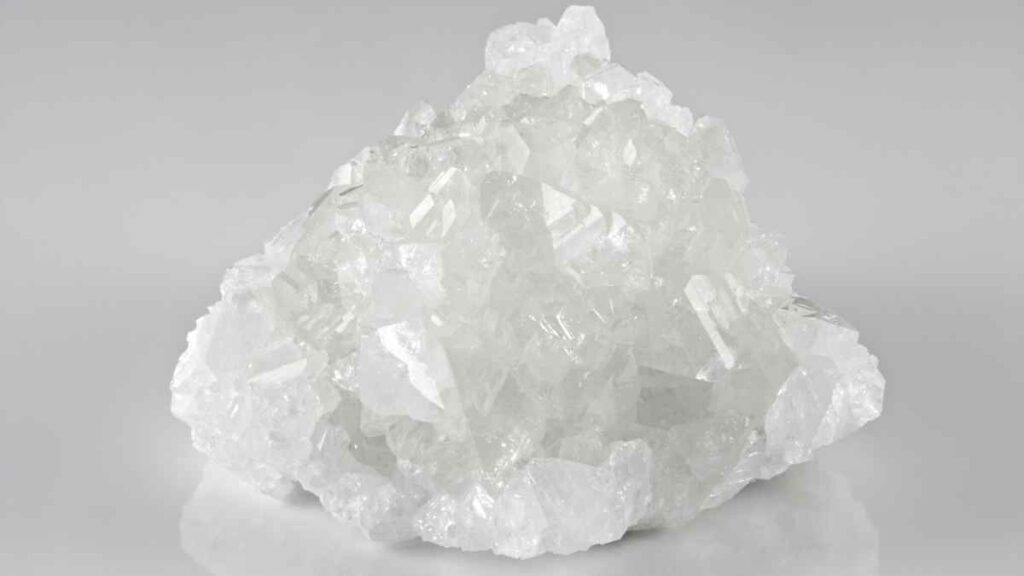
Borax is a salt that is poisonous to ants. When swallowed, it can kill ants by damaging their digestive systems, which attracts them to it.
All you have to do is combine borax with sugar granules and water until the mixture resembles a paste. Use it at the entrances to see them disappear.
Borax can also cause issues with humans, so use it with caution.
Boric acid (mixture)
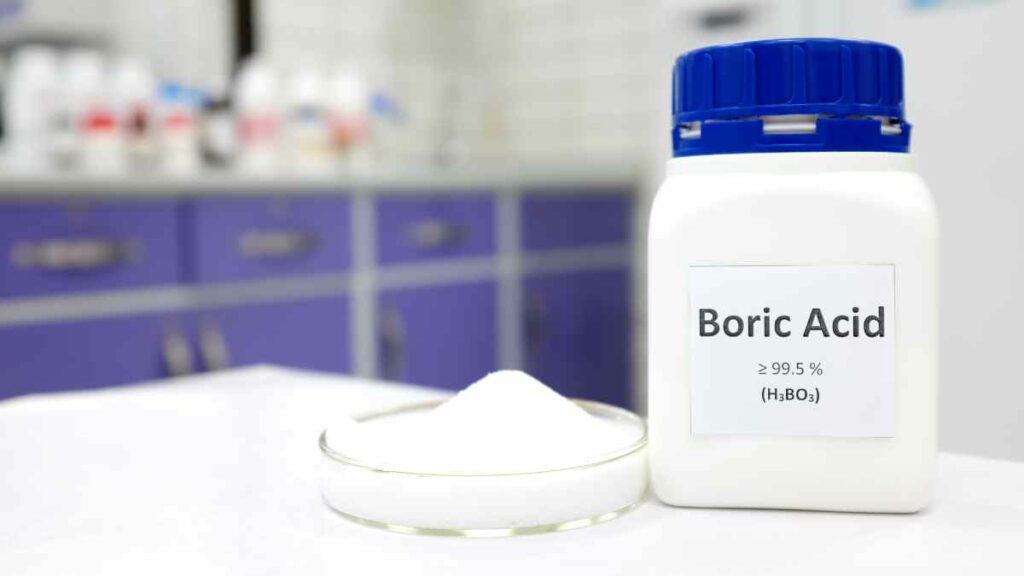
Another way to ensure your RV is ant-free is to create DIY ant baits from a mixture of Boric acid and the favorite foods of the ant species you’re dealing with.
Generally, ants love sugary foods, so you may mix boric acid with sugar. However, since other ants eat peanut butter or jam instead of sugar, you can also use them.
Mix the food and boric acid, add enough water to dissolve it, and your bait is ready. You can then place the bait into containers that ants can easily access (i.e., crawl into).
Afterward, you can place these containers in as many places as possible to control the ant infestation. In a matter of days, the ants will be turning up dead.
NOTE: for maximum effectiveness, you should keep any other potential food source out of reach for ants. This is because they may go to the food source instead of the ant bait, which lowers the effectiveness of the bait. Also, Boric Acid can cause issues for humans, if you do use it, use it with caution and follow these guidelines.
How to prevent ants from getting into your RVs
Now, how do you prevent ants from getting into your RV in the first place? Here are some tips on making your RV less appealing to ants.
Ant barriers
Finding a way to keep ants out of your RV may seem difficult because many campgrounds have an abundance of ant hills. Nevertheless, it can deter ants from entering your house-on-wheels, which usually ends your ant problem.
So, if you want to reduce the chances of an ant infestation in the future, you should consider building an ant barrier. Start by creating a barrier around the rig, then sprinkle ant repellants around the entire location.
The ants are put off by this and won’t cross the line. But know that this ring will need to be reapplied every time it rains.
Natural repellents
Several natural plants, oils, or other substances deter ants. Here are some that you should consider using:
Cinnamon
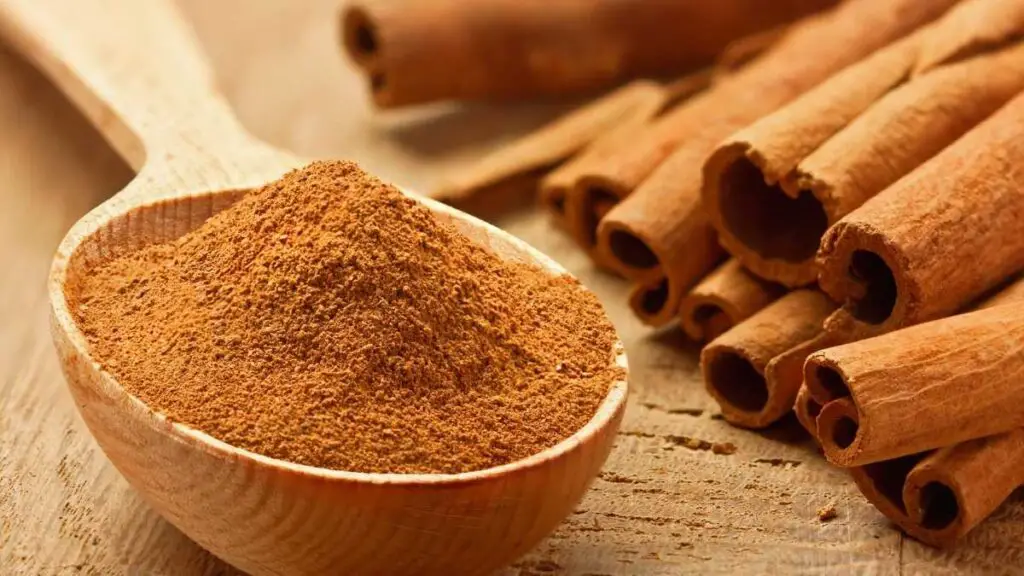
One of the most effective all-natural ant repellents is cinnamon. Because ants cannot endure the powerful aroma of spice, it has positive effects in killing and deterring ants.
According to a study published in the International Journal of Scientific and Research Publications, cinnamon essential oil can be used to fend off and occasionally even kill ants.
Simply take some cinnamon essential oil, soak a cotton ball in it, and place the cotton balls in places where ant activity is high. You can also use other essential oils like peppermint essential oil, clove essential oil, tea tree essential oil, lemon eucalyptus oil, or orange essential oil.
Vinegar (Diluted)
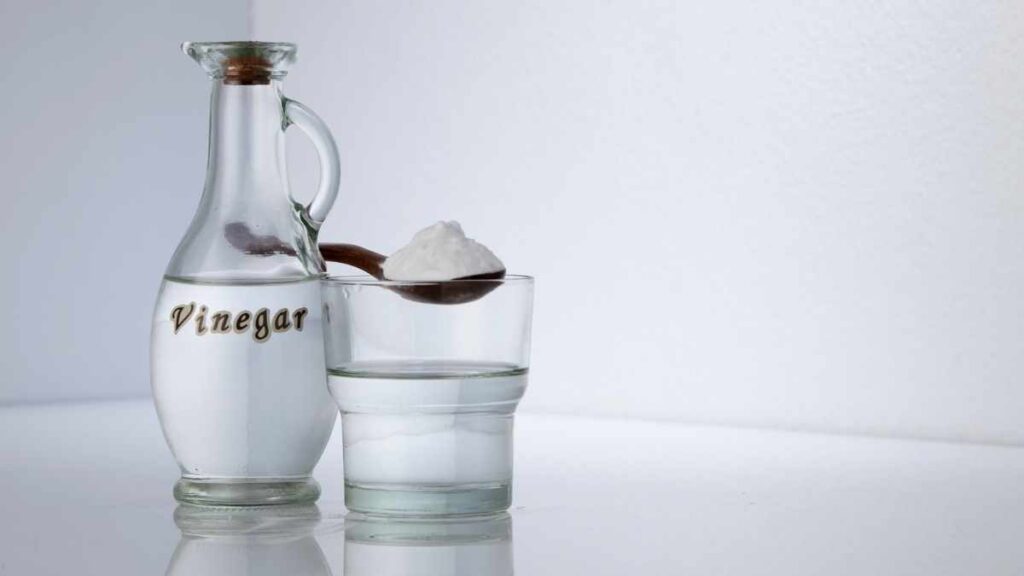
Due to its strong stench, vinegar is a popular home cure for getting rid of ants. Additionally, the potent smell prevents ants from following their natural scent trails, which confuses them.
To make a deterrent from vinegar, combine vinegar and water in equal quantities and then pour the mixture into a spray bottle. Then, you can use the solution as an ant spray. You can spray it in places where you often sight ants.
Ant-proof container
Another preventive measure you can take is storing food in ant-proof containers. Since ants can typically find their way into almost anywhere, it is expedient that you make conscious efforts to keep your food items out of their reach.
One way to do that is to store food in air-tight, ant-proof containers. Once there’s no food around, ants will not readily infest your RV.
Proper sanitation

A clean environment also reduces the chances of the ants finding food in or around your RV. So, you should be intentional about keeping your environment clean. Dispose of your leftovers properly, and also keep a well-covered trash can.
Get rid of all the things that attract ants.
Conclusion
That’s it, then. The next time you visit a campsite in your RV, you can take some of the repellants with you as a preventive measure, so you won’t have to start dealing with an ant problem.
But if you already have ants in your RV, you can get to work using any of the above methods. You can also sprinkle granular ant bait or use ant traps in your RV.
Good luck!

